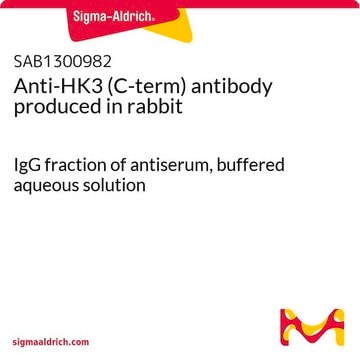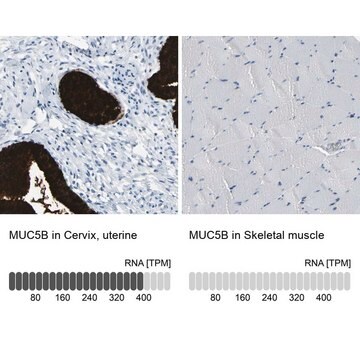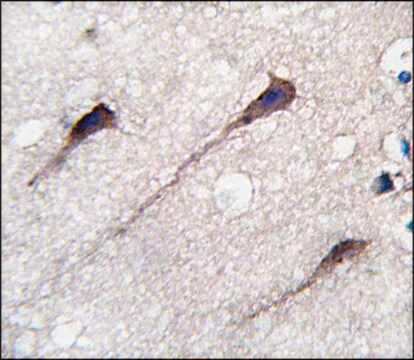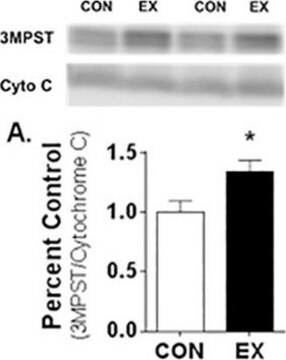SAB1300430
Anti-MST3 (C-term) antibody produced in rabbit
IgG fraction of antiserum, buffered aqueous solution
Synonyme(s) :
Anti-Mammalian STE20-like protein kinase 3, Anti-STE20-like kinase MST3, Anti-STK24, Anti-STK3, Anti-Serine/threonine protein kinase 24
About This Item
Produits recommandés
Source biologique
rabbit
Conjugué
unconjugated
Forme d'anticorps
IgG fraction of antiserum
Type de produit anticorps
primary antibodies
Clone
polyclonal
Forme
buffered aqueous solution
Espèces réactives
human
Technique(s)
immunohistochemistry: 1:50-1:100
indirect ELISA: 1:1000
western blot: 1:100-1:500
Numéro d'accès NCBI
Conditions d'expédition
dry ice
Température de stockage
−20°C
Modification post-traductionnelle de la cible
unmodified
Informations sur le gène
human ... MST3(8428)
Description générale
Immunogène
This antibody is generated from rabbits immunized with a KLH conjugated synthetic peptide selected from the C-terminal region of human MST3.
Actions biochimiques/physiologiques
Forme physique
Not finding the right product?
Try our Outil de sélection de produits.
Code de la classe de stockage
10 - Combustible liquids
Classe de danger pour l'eau (WGK)
nwg
Point d'éclair (°F)
Not applicable
Point d'éclair (°C)
Not applicable
Certificats d'analyse (COA)
Recherchez un Certificats d'analyse (COA) en saisissant le numéro de lot du produit. Les numéros de lot figurent sur l'étiquette du produit après les mots "Lot" ou "Batch".
Déjà en possession de ce produit ?
Retrouvez la documentation relative aux produits que vous avez récemment achetés dans la Bibliothèque de documents.
Notre équipe de scientifiques dispose d'une expérience dans tous les secteurs de la recherche, notamment en sciences de la vie, science des matériaux, synthèse chimique, chromatographie, analyse et dans de nombreux autres domaines..
Contacter notre Service technique







